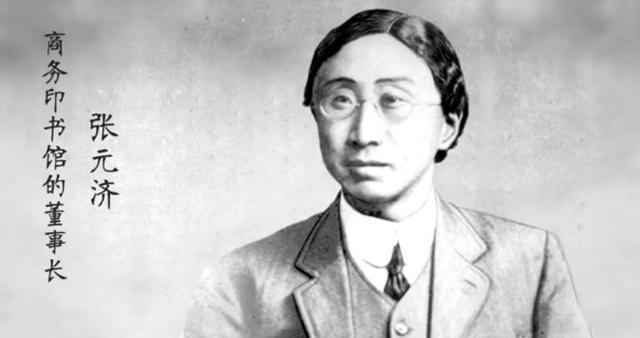
Literature and history: Zhang Yuanji was the first person in China's publishing industry and the founder of the Commercial Press. During his presidency of the Commercial Press, the Commercial Press completed the transformation from a printing factory to a publishing giant, becoming a cultural center for popularizing and disseminating new knowledge and new learning since the late Qing Dynasty. Mr. Zhang Yuanji once said: "Hundreds of years old home is nothing but accumulation of virtue, the first good thing is to read." This famous saying is the code of conduct that Mr. Zhang Yuanji has pursued throughout his life, and it is a portrayal of Mr. Zhang Yuanji's life, and his principal does not sell books, and a set of books prints hundreds of millions of copies.
Zhang Yuanji was born in Haiyan, Zhejiang Province, in 1867 in Guangdong. Famous and prestigious family, scholarly family. The ninth ancestor Zhang Wei chi created the "Wading Garden" (a famous library in Jiangnan in the early Qing Dynasty), and of the 9 brothers of the sixth ancestor Zhang Zongsong, 6 were famous for their book collection.
Zhang Yuanji's father, Zhang Senyu, relied on donations to become a member of the Shi, and later made up for the lack of real deficiencies, and served as a Zhi County in Hunan Huitong and Hainan Lingshui. At the age of 14, Zhang Yuanji returned to his hometown to prepare for the county test, and soon his father died in office, and the Zhang family "did not give almost everything in cloth and vegetables."
Zhang Yuanji's career went smoothly, and he was a middle talent at the age of 17.
In the eighteenth year of Qing Guangxu (1892), he entered the priesthood and was awarded the Title of Shu Jishi of the Hanlin Academy, and a colleague of Cai Yuanpei. Cai and Zhang were born in the same year, and in the same year, they were also zhongju and zhongjinshi.
He served as the chief of the Punishment Department and the prime minister Yamen Zhangjing. He participated in the Wushu Reform Movement and was received by the Guangxu Emperor. The change of law failed, and he was "dismissed from his post and never used".
He settled in Shanghai and served as the head of the Chinese Department of Nanyang Public School, the dean of the Translation College, and the general office of the public school.
In 1903, he entered the Commercial Press, and under his presidency, "Commerce" became the largest publishing enterprise before liberation.
Among the various ancient book series that Zhang Yuanji sorted out and photocopied, the ones with the most diligence and the most effort were the "Four Series" and the "Twenty-Four Histories of the Hundred Books". These two large books also have the greatest cultural influence and are still the basic documents commonly prepared by ancient book workers at home and abroad.
In 1948, he was elected as an academician of academia sinica.
After liberation, he successively served as a member of the East China Military and Political Committee, a member of the East China Administrative Committee, the director of the Shanghai Museum of Culture and History, the first member of the National Committee of the Chinese People's Political Consultative Conference, and a deputy to the First and Second National People's Congresses.
Zhang Yuanji's dealings with Mao Zedong began in September 1949. At that time, the founding of New China was imminent, and the political consultative conference of the Chinese people was held in Beijing, and Zhang Yuanji, a patriotic old man who had made great contributions to China's modern publishing cause, attended the meeting as a special representative.
On September 19, 1949, Mao Zedong invited Zhang Yuanji to visit the Temple of Heaven with him, accompanied by Chen Yi, Liu Bocheng, su Yu and others. Along the way, everyone was full of excitement and laughter.
On the evening of October 11, 1949, Mao Zedong met Zhang Yuanji at the Zhongnanhai Yinian Hall and had dinner.
At the end of 1952, Shanghai prepared to build a museum of culture and history, and the central government decided to ask Zhang Yuanji to be the director. But Zhang Yuanji did not agree because of hemiplegia. In the spring of the following year, Mayor Chen Yi twice went to his bedside to convey Mao Zedong's instructions: "The first director of the Shanghai Museum of Culture and History is none other than him." He no longer prevaricated.
In the spring of 1958, Premier Zhou Enlai inspected Shanghai and went to the hospital to visit Zhang Yuanji, who was becoming increasingly ill.
He died in Shanghai on August 14, 1959. He died on December 31, 2012 at the age of 9
Zhang Yuanji (25 October 1867 – 14 August 1959), male, character Xiao Zhai, number Ju Sheng, Zhejiang Haiyan people. China's outstanding publisher, educator, and patriotic industrialist.
#历史上的今天 #